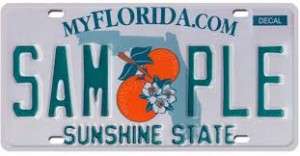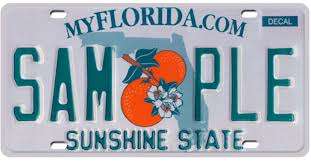Florida Online Poker Players Fear Impact of New Sweepstakes Law
A tale of unexpected consequences caused by an unrelated gambling crackdown has many Florida online poker players wondering if the state will officially outlaw the game.
 As FlushDraw’s Dave Behr reported earlier today, a new Florida measure with far-reaching wording designed to stomp out the proliferation of so-called “internet cafes” throughout the state has marched through Florida’s House with ease, passing on a 108-7 vote, and a similar bill is up for consideration this week in the Florida Senate. The passge of the bill, given its current language (below), threatens to define all electronic devices that can be used for gaming purposes as “slot machines.”
As FlushDraw’s Dave Behr reported earlier today, a new Florida measure with far-reaching wording designed to stomp out the proliferation of so-called “internet cafes” throughout the state has marched through Florida’s House with ease, passing on a 108-7 vote, and a similar bill is up for consideration this week in the Florida Senate. The passge of the bill, given its current language (below), threatens to define all electronic devices that can be used for gaming purposes as “slot machines.”
The virtual sweep would cover everything from personal computers to iPhones and combined with the measure’s explicit disregarding of possible “games of skill,” could be construed as an online-poker ban without even mentioning poker by name.
Florida’s House Bill 155 became a hot-button issue after authorities announced an investigation into an a gambling ring run through a large chain of the internet cafes. The investigation, called “Operation Reveal the Deal,” looked into the finances of a large internet-cafe operation called Allied Veterans of the World.
Allied, which was registered as a charitable organization, operated 49 of the internet cafes throughout Florida. The Allied venues, typically in strip malls, featured banks of internet-based slots and video poker.
Allied claimed to dispense 70% of its net proceeds to veterans’ groups, but the state’s investigation revealed that out of $300 million in net proceeds generated from the cafes, only about 2% found its way to the designated recipients. The rest was siphoned off to the organization’s owners, who spent lavishly on homes, cars and other luxuries.
Fifty-seven people were then arrested in the related sweep, including prominent police, state officials, while prominent Jacksonville attorney Kelly Mathis has been described as the “mastermind” of the scheme, according to published reports. Mathis received roughly $7 million in legal billings representing Allied’s interests.
The fallout strecthed right to the top of the state, causing the resignation of Florida Lieutenant Governor Jenny Carroll. Carroll was not among those arrested, but her PR firm did work for Allied, and Carroll herself appeared in a commercial for the internet-cafe chain, causing her to be questioned by investigators regarding the case.
All of adds up to a big public-relations mess for the state, and the quick crackdown was the obvious result. But did HB 155 overreach?
With a nod to Florida’s Martin Shapiro, the state’s former PPA rep, whp first posted some of the bill’s language on the web, the relevant part of the bill reads as follows:
As used in this chapter, the term “slot machine or device” means any machine or device or system or network of devices that is adapted for use in such a way that, upon activation, which may achieved by, but is not limited to, the insertion of any piece of money, coin, account number, code, or other object or information, such device or system is directly or indirectly caused to operate or may be operated and if the user, whether by application of skill or by reason of any element of chance or any other outcome unpredictable by the user, may:
(a) Receive or become entitled to receive any piece of money, credit, allowance or thing of value, or any check, slug, token or memorandum, whether of value or otherwise, which may be exchanged for any money, credit, allowance, or thing of value or which may be given in trade; or
(b) Secure additional chances or rights to use such machine, apparatus or device, even though the device or system may be available for free play or, in additional to any element of chance or unpreditable outcome of such operation, may also sell, deliver, or present some merchandise, indication of weight, entertainment, or other thing of value. The term “slot machine or device” includes, but is not limited to, devices regulated as slot machines pursuant to chapter 551.
As one can see, that language is designed to designate any possible electronic device as a possible slot machine. Even more important are the inclusion of such terms as “code,” “information,” and of course the explicit detailing that whether or not skill is involved is irrelevant.
That’s how badly the state wants to shut down these internet cafes, which have exploited such loopholes as using payouts via electronic credits or printed tickets as a way to get around the traditional three-pronged gambling rule regarding the providing of consideration (money).
What’s glaringly missing from the language is obvious: defining it to refer to commercial locations, rather than private homes, and that’s what has online poker players nervous, as well as a lot of other types of gamers.
All that aside, would Florida authorities use a finalized version of HB 155 to target online poker players, when it’s clear the targets of the bill are commercial internet cafes offering video-game based slots? That’s the counterpoint to the argument made by Shapiro and others, and other observers have opined that the new law changes nothing about online poker as currently viewed by Florida authorities. Nor are offshore sites currently serving Florida residents likely to be overly concerned about a law that doesn’t even mention poker, meaning that the passage of HB 155 or a similar bill is unlikely to dramatcially affect the current options for playing online poker from Florida.
Nonetheless, the Florida situation bears monitoring, to note the final form of the bill and the possible secondary effects it could have on other forms of electronic gaming. Though Florida is unlikely to become another Washington, the state’s move to stamp out its endemic internet cafes remains imperfect in the execution.




















COMMENTS